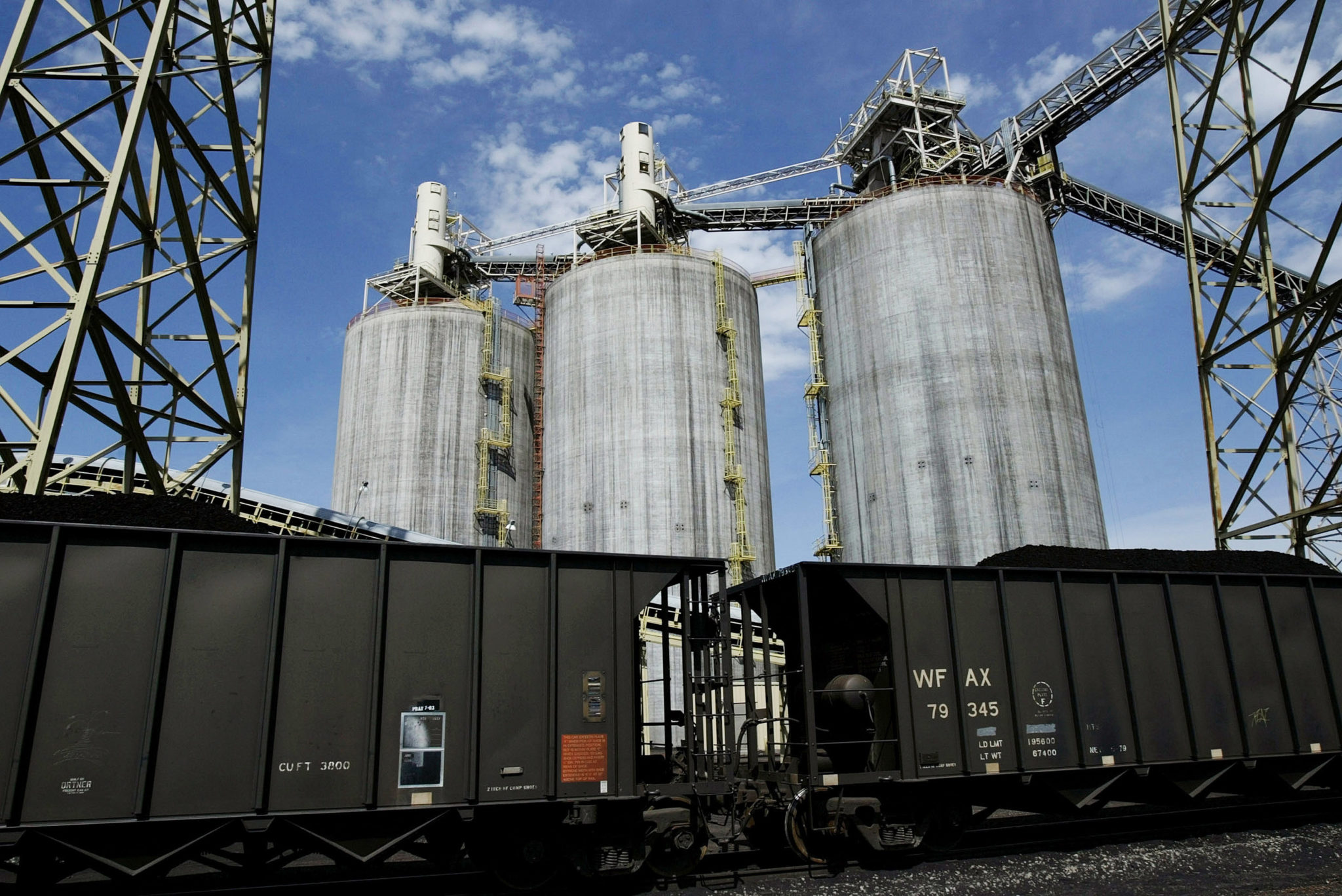Rail Strike Would Destroy Wyoming’s Coal Industry But It’s Not Going To Happen

By Kevin Killough
November 26, 2022 - In September, President Joe Biden stepped in to help with labor negotiations between unions and major freight railroads, and a strike was averted with a tentative agreement. Four of the 12 unions have since voted against the agreement.
Once again, the unions are planning to strike, which is now set for Dec. 6. If one union votes to strike, they all strike.
If that were to happen, Wyoming’s coal, soda ash and other mines would come to a screeching halt. Every industry in America that uses rail transport would be impacted.
The good news is, should a strike happen, it’s not likely to last long.

Photo by Robert Nickelsberg, Getty Images
There’s Precident
Railroad employees went on strike beginning June 24, 1992. By the following day, the U.S. House and Senate passed a bill that ended the strike and required mandatory arbitration in railroad labor disputes.
Stan Blake, a former Wyoming representative who worked for Union Pacific Railroad for more than 30 years, told Cowboy State Daily that Congress will likely end a strike if it happens again.
The railroads are considered an essential service so vital to national security that it’s unlikely lawmakers wouldn’t intervene to bring a work stoppage to an end.
Blake was working for the railroads in 1992 when employees went on strike.
“I had been working for two years when we went on strike, and we were on strike for about 17 hours,” Blake recalled.
Posturing
Wyoming energy economist Robert Godby told Cowboy State Daily he expects that Congress will end a rail strike if it happens.
“It’s very possible that the rail workers, given their importance to the economy, could be legislated back to work,” Godby said.
If trains stopped running, coal would stop shipping, which would hurt the mines. But the impacts of that go all the way to the average American, he said. Tons of goods wouldn’t get shipped, and it wouldn’t be long before coal-fired energy plants would stop operating.
“Their inventories right now are relatively low by historic standards,” Godby said.
The railroad unions know how important their work is to the nation and pushing it to the brink of strike, Godby speculated, could be part of their strategy.
“What we’ve got right now is posturing,” Godby said.
He added that the union votes on the agreement were close and most unions voted for the new contract, so it’s not an overwhelming mandate.
“It’s possible a strike could happen, but if it did, my expectation would be that it would be very short-lived,” Godby said.
Workers Have Reason To Strike
“The railroads, they treat their employees horribly,” Blake said.
The tentative agreement brokered by the Biden administration in September gave workers a 24% raise over five years, an additional personal day and limits on health care costs. It also adjusts the railroads’ attendance policies to allow workers to attend to medical needs without facing penalties for missing work.
Blake, who was a former conductor with Union Pacific, said the workers’ demands are not unreasonable.
Workers, he said, don’t know when they’re going to get called. A conductor might think he has a day off and may spend the day doing chores and spending time with his family, only to find out that evening that he’s got to go into work just as he’s ready to go to sleep. So, he goes into work without rest.
This leads to a lot of worker fatigue, Blake said, which can cause health problems and safety issues.
Rail management is “horrible at predicting availability, and railroad workers want to know when they’re going to have to work,” Blake said.
Union Pacific Responds
Susan Stevens, a Union Pacific spokesperson, said negotiations with the unions are continuing, and the current round of national negotiations included the largest raises for the company’s union workforce in decades. The 24% increase will push average railroad salaries to $110,000 per year by 2024.
Stevens said the company continues to work to make jobs attractive, especially the unscheduled, on-call jobs.
“We continue to make changes to our attendance policy based on employee feedback, and we are currently piloting a work/rest pilot that we hope to learn from and implement more broadly,” Stevens said.

